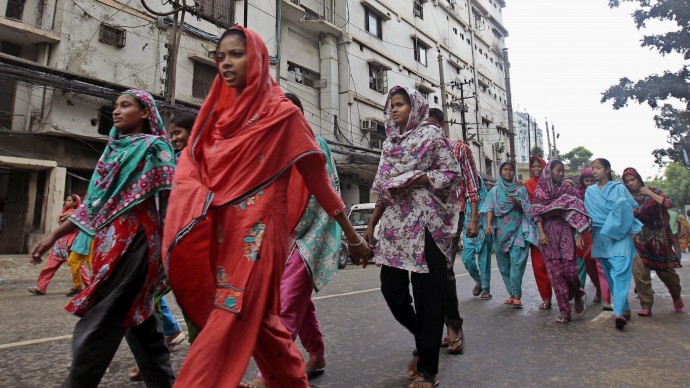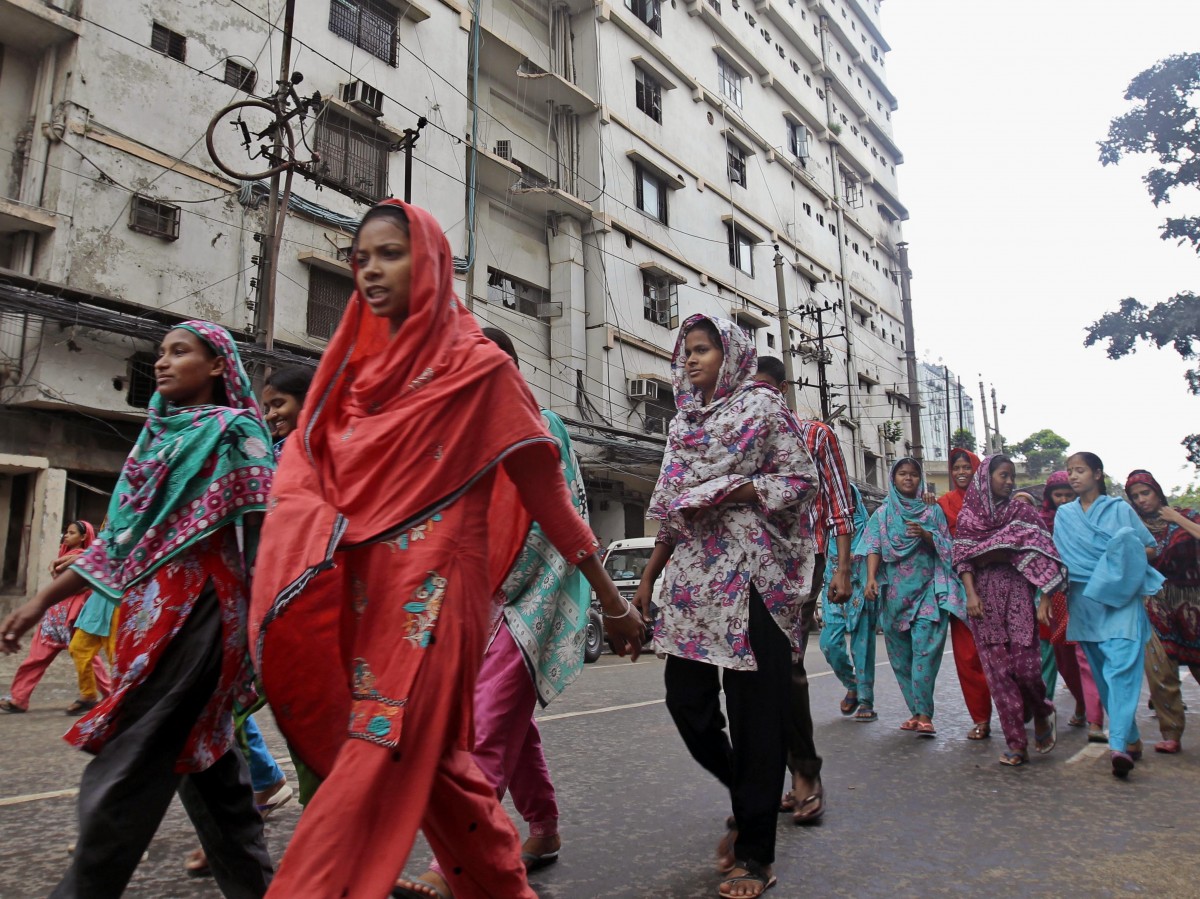
Garment workers in Bangladesh will receive a 77 percent pay increase following a labor strike against the country’s industry, a small step toward victory among a group of workers that has long battled an industry responsible for dangerous working conditions.
Bangladesh garment workers were hoisted into the spotlight earlier this year when the roof of a factory building collapsed, killing more than 1,100. Experts claimed the accident would not have occurred if safety measures had been met.
Despite the pay increase for factory workers, who are largely women, the agreement fell short of the workers’ demands. The negotiated salary will provide workers, on average, with 5,300 taka per month, which equates to roughly $68 per month. Initially, workers requested $3,000 taka a month, or $100 per month.
As garment workers protested the lower-negotiated deal, police fired tear gas and bullets into the crowd as workers occupied the street. Yet the negotiated salary, accepted by union leaders, did prompt some workers to return to the factories.
The pay raise is substantial in relation to what workers were earning. However, critics claim it’s anything but generous. Bangladesh is the second highest producing garment nation in the world, home to an industry worth $20 billion a year.
“Indeed, despite this significant raise, the garment workers will still be among the lowest compensated in the world,” Kevin Matthews of Care2 wrote. “Sadly, most of the Bangladeshi workers would be ecstatic to receive the money paid to sweatshop employees in other parts of the globe.”
The Daily Globe reports that workers were disappointed with negotiations over wages. Prior to the increase, thousands went on strike, shutting down more than 100 factories and flooding the streets with demands of higher wages and safer conditions.
The protests and wage hikes come as a new report was released, claiming that another factory disaster like the one seen earlier this year could happen again. The report was launched by the English all parliamentary group in Bangladesh, according to the Globe.
“Consequently, there is high chance of a repeat of the tragic events of Rana Plaza and Tazreen Fashion’s fire. These risks compromise the long-term investments of brands and limit their ability to improve working conditions,” the report states.
Another report found that one in six factories that contract with Wal-mart failed to meet safety standards. According to the report, the factories had structural deficiencies and failed to meet fire codes.
Now, British MPs are calling for not only stricter regulations, but also regular audits to ensure factories stick to standards. If they fail to, MPs claim factory worker representatives should be informed.


